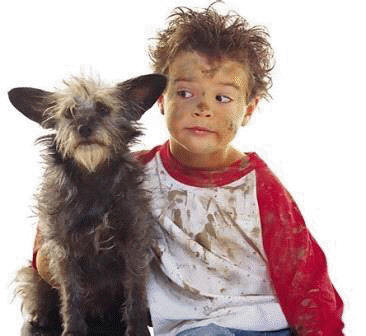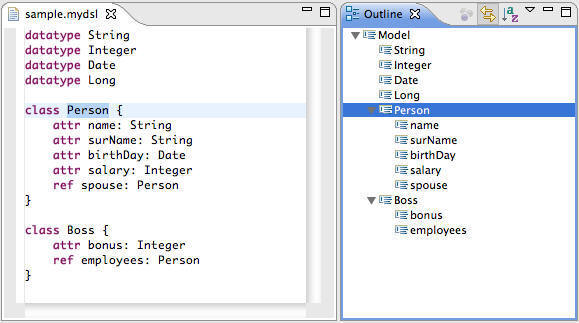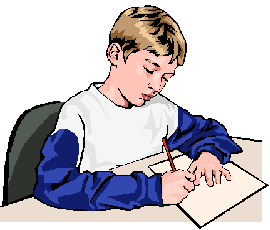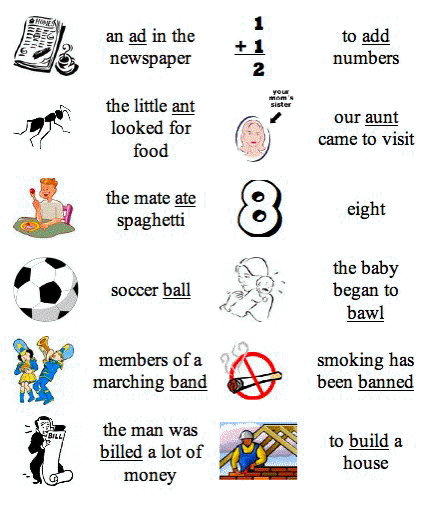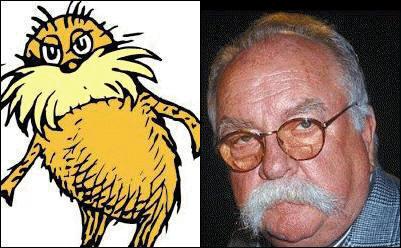|
|
|
Chapter 6: An Adventure |
|

|
Read the passage. Then answer questions about the passage below. |
Proyecto Salón Hogar
|
Jaime is a boy. Jaime lives in a house. Jaime lives in the country. Jaime lives in a house in the country. Jaime has a dog. The dog is named Go-Go. Jaime and Go-Go are friends. Jaime and Go-Go are bored. They want to do something new. They want to do something fun. They want to do something
exciting. Jaime and Go-Go walk out of the house. They walk
across the yard. They walk across the field. They jump over the fence. Jaime sees a mountain. The mountain is very tall. The top of the mountain is in the clouds. Jaime looks
at the mountain. “We are going to the top of that mountain,”
Jaime says. Go-Go looks nervous. “Don't be nervous,” Jaime says. Go-Go runs after Jaime. They walk toward the mountain. Jaime stops. He looks back at the house. “I am a little tired,” Jaime says to
Go-Go. Go-Go licks Jaime’s face. Jaime turns around. “Come on Go-Go. We will climb
the mountain tomorrow,” Jaime says. Jaime starts to walk home.
Go-Go runs after Questions 1) Where does Jaime live? A. He lives in a house in the city. B. He lives in an apartment in the country. C. He lives in a house in the country. D. He lives in an apartment in the
city. 2) What kind of animal is Go-Go? A. ____________________ 3) What does across mean? A. under B. close to C. far away from D. from one side to the other side |
Page 1
![]()
|
4) What does Jaime want to do at the beginning of the story? A. go home B. climb a mountain C. go fishing in the river D. play a game with Go-Go 5) What does Jaime want to do at the end of the story? A. go home B. climb a mountain C. go fishing in the river D. play a game with Go-Go
6) Why is Go-Go nervous? A. He is hungry. B. He wants to play catch. C. He doesn’t want to go home. D. He doesn’t want to climb the
mountain. 7) Jaime says he will climb the mountain tomorrow. Is this true? A. Probably. B. Probably not. Would you like to live in the city, or would you like to live in the country? Why? I would like to live in the ___________ because _____________________________________________________ __________________________________________________________________________________________ __________________________________________________________________________________________ __________________________________________________________________________________________
|
Page 2
![]()
The Drive
|
Page 3
![]()
|
7) What does Gustavo need to do when he
gets home? __ A. Read a story. __ B. Milk the cows. __ C. Cut the grass. __ D. Water the flowers.
8) What does Gustavo want to do when he
gets home? __ A. Sit with his wife. __ B. Water the flowers. __ C. Read to his little girl. __ D. Play a game with his
little boy 9) Why may Gustavo need to cut the grass? A. It is too green. B. It is too brown. C. It is too long. D. It is too short. 10) Why may Gustavo need to water the flowers? A. So they will go. B. So they will give. C. So they will grow. D. So they will guess. Vocabulary: Sentence Completion Choose the best word to
complete each sentence. 1) Twenty-two is a _______. A. food B. number C. color D. car 2) Baseball is a _______. A. country B. city C. sport D. vegetable 3) Italy is a _______. A. country B. sport C. city D. color 4) Green is a _______. A. fruit B. language C. number D. color |
||||||||||||||||||||||||||||
|
Page 4
Page 5
|
||||||||||||||||||||||||||||
|
Grammar: Possessive Nouns Nouns that are transformed to show ownership are called possessive nouns. - Add an apostrophe (') and an
s to singular nouns to create a possessive noun. -Add an apostrophe (') after the
s in plural nouns to transform into possessive noun. -Add an apostrophe (') and a s
for irregular nouns that do not end with s to
transform into possessive nouns. -Add an apostrophe (') after the
s or add 's to change proper nouns ending
in s into possessive nouns.
1. Where is the mans favorite chair? _____________________ 2. Moms car is very clean. _____________________ 3. The boys balloon went into the sky. _____________________
|
||||||||||||||||||||||||||||
|
Page 6
|
||||||||||||||||||||||||||||
|
|
Writing: The Outline A very useful tool to help writers plan their work is an outline. Outlines use a combination of numbers and letters to organize information and ideas for the writer. There are many different types of outlines, for example, a formal outline follows a traditional format. Below is an example of a formal outline.
In order to write outlines well
you need to practice. Gather ideas and create a formal
outline to write a paragraph about friendship. I. Title __________________________________________________ A. Important idea __________________________________________________ 1. Detail __________________________________________________ 2. Detail __________________________________________________ B. Important idea __________________________________________________ 1. Detail __________________________________________________ 2. Detail __________________________________________________ II. Conclusion __________________________________________________
|
|||||||||||||||||||||||||||
| Page 7
|
||||||||||||||||||||||||||||
|
|
Literature: The Narrator
A person telling a story is a narrator. The narrator tells the story through his or her eyes and influences our understanding of the character's actions. Some stories have more than one narrator telling the story. How does a narrator make a difference in story? ____________________________________________________ _________________________________________________________________________________________
There are two common types of point of view. ~ Third-person point of view, the
person did not experience the events in the story, ~ First-person point of view, the person describes oneself as "I" in the story meaning they are in the story.
Which point of view was the story "Drive" written in? ________________________________
Explain you answer. __________________________________________________________________________________________ __________________________________________________________________________________________ __________________________________________________________________________________________
Read the paragraphs and decide the point of view. I was sixteen years old when I started driving
my car. First-person View ___ or Third person View ___ Explain _____________________________________________________________________________________ __________________________________________________________________________________________
I remember a long time ago a boy who was the star baseball
player. First-person View ___ or Third-person View Explain _____________________________________________________________________________________ __________________________________________________________________________________________
|
|||||||||||||||||||||||||||
Page 8
|
||||||||||||||||||||||||||||
|
|
Vocabulary: Same Sound Find the word that has the same sound as the underlined letter or letters in the first word.
Board sounds like boar. Example: BOARD : A. boat B. boar (Correct!) C. scared D. card
1) ACCESSARY: A. uneccesary B. neccesary C. accessory D. both
2) DEW: A. two B. who C. boo D. due
3) LEAK: A. see B. leek C. cat D. play
4) RYE: A. why B. cry C. eye D. wry |
|||||||||||||||||||||||||||
| Page 9
|
||||||||||||||||||||||||||||
|
5) SINK: A. fine B. think C. time D. ink
6) BAIL: A. bale B. nail C. nail D. pale 7) MAINE: A. gain B. mane C. paine D. tea
8) RUNG: A. run B. show C. wrung D. plug
9) FAY: A. faith B. fame C. ate D. fey
10) FLOUR: A. flower B. powder C. power D. floor
|
||||||||||||||||||||||||||||
|
Page 10
|
||||||||||||||||||||||||||||
